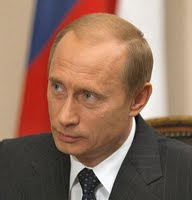When Russian Prime Minister Vladimir Putin invited Western energy companies to help develop natural gas fields in Siberia's Yamal Peninsula in late September, many Western observers viewed it as an admission of defeat. After years of increasing state involvement in the upstream of the Russian hydrocarbon sector, a collapse in the price of oil had pushed Moscow to reconsider its adversarial relations with private investors -- foreign and domestic alike. While there is some truth to this interpretation, it ignores a more important narrative that emerged from the meeting at the Siberian frontier town of Salekhard about Russia's shifting attention toward liquefied natural gas (LNG).
Russia's natural gas resources form the backbone of its domestic economy and represent a major factor in its foreign policy. With the world's largest natural gas reserves, Russia manages to both subsidize domestic gas consumption and export large quantities to Europe by way of pipelines. About one-fourth of EU gas demand is sourced from Russia, and individual countries in Central and Eastern Europe often source their entire gas demand from their eastern neighbor.
Because natural gas is just that -- a gas -- its transportation has long relied on pipelines, with long-term contracts fixing the amount sold and purchased, and the price indexed to that of oil. These contracts were initially justified by the enormous capital expenditures required to develop new gas fields and build expensive long-distance pipelines.

